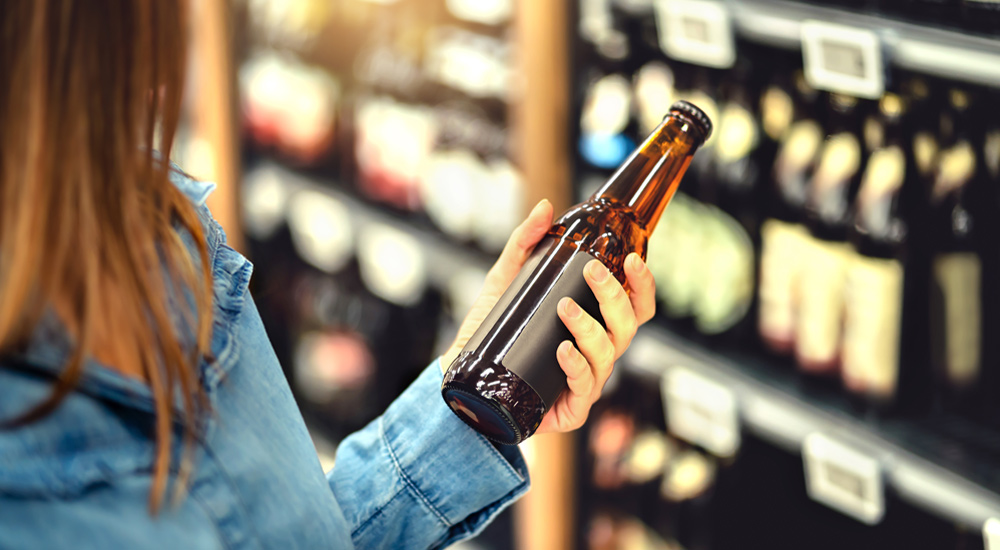New report reveals key features of no- and low-alcohol drinks market

The first of a new series of reports into no- and low-alcohol drinks was published today (15 January 2024) by the Sheffield Addictions Research Group.
'No- and low-alcohol drinks in Great Britain: Monitoring report' was produced as part of an NIHR-funded project which explores whether making non-alcoholic or low-alcohol drinks more available and popular in Great Britain can improve people's health.
The report draws on our analyses of commercial market research data along with our own survey data to provide a detailed description of the no/lo drinks market in Britain, who drinks these products and how that is changing over time.
It also offers insights into key topics including pricing, market concentration and differences between the off-trade and on-trade sectors.
Key findings include:
- In 2022, one-third of adults consumed no/lo alcohol drinks at least once in the last year, 18 per cent consumed no/lo drinks at least once a month, and 10 per cent at least once a week
- People drinking at risky levels are more likely to consume no/lo drinks regularly than lighter drinkers or non-drinkers
- No/lo drinks are more expensive than standard alcoholic beverages – this means health inequalities may widen if people from more deprived households cannot afford them
- Major alcohol brands dominate the no/lo drinks market and account for 98 per cent of no/lo beer sales in shops
Other findings in the report show the products are increasingly popular in the UK, with sales growing to £221m in 2021, this figure has continued to rise. The government is committed to encouraging this trend as a central part of its public health policies.
The monitoring reports will be produced annually and aim to help the government and health organisations better understand the role the beverages could play in improving public health.
Speaking about the findings on pricing of no/lo drinks, lead author of the report and Director of the Sheffield Addictions Research Group, Professor John Holmes, said: "It's good to see evidence that risky drinkers are trying no/lo alcohol drinks. However, no/lo drinks are often relatively expensive. That's a problem because alcohol causes the most harm among more deprived groups. If those groups can't afford no/lo drinks, it might mean we see only small improvements in public health."
To discuss the findings of the report, or the No/Lo Project, in more detail please contact sarg@sheffield.ac.uk.
Download: Monitoring report
Download: Data tables
-
New research shows that spending less on tobacco, gambling and sweets is good for the UK economy
A new study from the Sheffield Addictions Research Group (SARG) has found that public health policies which reduce spending on harmful products can actually provide a significant boost to UK jobs and the wider economy.
-
SARG researcher Dr Parvati Perman-Howe secures NIHR Career Development Award
We are delighted to announce that Dr Parvati Perman-Howe, a Research Associate within the Sheffield Addictions Research Group (SARG), has secured a highly sought-after Career Development Award.
-
Professor John Holmes contributes to major new report outlining actions to tackle alcohol harm
SARG Director Professor John Holmes was part of an expert panel that supported the development of 'A Healthier Future: A long-term vision to tackle alcohol harm in the UK', a significant new report published by the Institute of Alcohol Studies (IAS) this week.
-
SARG researchers present on economic modelling and wastewater surveillance at European Public Health Conference
Two researchers from the Sheffield Addictions Research Group (SARG), Dr Charlotte Head and Dr Esther Chanakira, will showcase innovative local-level tools for policy design, including economic modelling and wastewater surveillance, at the European Public Health (EPH) Conference in Helsinki from 11–14 November 2025.
You might also be interested in…
-
SARG researcher Dr Parvati Perman-Howe secures NIHR Career Development Award
We are delighted to announce that Dr Parvati Perman-Howe, a Research Associate within the Sheffield Addictions Research Group (SARG), has secured a highly sought-after Career Development Award.
-
SARG to present latest research on alcohol-free and low-alcohol drinks at SSA Annual Conference 2025
Researchers from the Sheffield Addictions Research Group (SARG) are set to present their latest findings on alcohol-free and low-alcohol drinks at the Society for the Study of Addiction (SSA) Annual Conference 2025.
-
New report reveals further growth and key trends in alcohol-free and low-alcohol drinks market
A second Monitoring Report from the Sheffield Addictions Research Group has been published, revealing further growth in the alcohol-free and low-alcohol (no/lo) drinks market and offering new insights into consumer behaviour and pricing.
